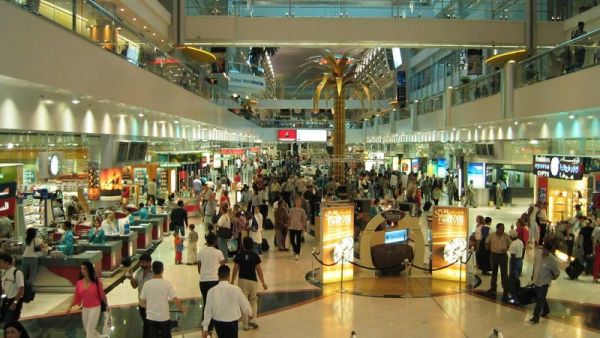The Middle East and North Africa (MENA) is a vast region with a rich landscape, varying terrain and lifestyles. While there are many similarities between the countries in the region, bound together by shared facets of culture and tradition, there are also many defining differences that set them apart. Which are the top cities in the MENA region, and what makes them the best cities to live and work in?
9 Ways to Turn a Job You Hate Into a Job You Love
The Bayt.com Top Cities in the Middle East and North Africa Survey 2017 answered this question and more by taking an in-depth look at each city in the region and assessing which ranks the highest based on the attributes people in the region value the most, such as security and stability, economic factors, labor rights and more.
1. Economy
The economic factors the survey looks at are comprised of six key elements that could be related to any given individual’s life in a city. Economic factors have a crucial role in shaping the overall quality of life in a certain city. In order to discern which of the many cities in the Middle East and North Africa are the best to live in, the economic environment has to be assessed. These six elements include job availability; salary competitiveness; benefits for working parents; availability of affordable housing, reasonably priced daily necessities, such as food, water and fuel; and career growth opportunities.
Each of these can negatively or positively impact an individual’s overall happiness while living and working in their city of residence. Some carry more weight than others, however. For instance, almost eight in 10 respondents believe that availability of jobs is the most important economic aspect when it comes to choosing a city to live in. This is followed closely by availability of career growth (74%) and availability of affordable housing (73%)
When it comes to economic factors, the most favoured cities in the Middle East and North Africa included: Muscat, Abu Dhabi, Doha, Dubai, Manama, Sharjah, Riyadh, Eastern Province, Kuwait City, and Jeddah
2. Labor Rights
Another element that hugely impacts the way an individual views a city is labor rights. These not only affect the working population in terms of quality of living, but they also impact the non-working population. For instance, if there were no termination rights in a particular, it would affect both the employee and their unemployed dependents.
The labor rights considered most important to the MENA population consist of end-of-service benefits, termination rights, vacation allowances, parenthood allowances, wage protection system, health insurance and social security systems and pro-active policy making. Of these, health insurance and social security systems are considered the most important labor rights according to 82% of respondents. End-of-service benefits (74%) and wage protection systems (72%) are also considered incredibly important to the population.
When it came to the provision and quality of labor rights, the cities which scored the highest are: Abu Dhabi, Doha, Dubai, Muscat, Riyadh, Kuwait City, Eastern Province, Jeddah, Amman, and Tunis.
3. Environment
It should come as no surprise that the environment can have a considerable effect on how individuals feel about their city of residence. This relates to comfort, cleanliness and overall quality of life and applies to the city as a whole.
How Moms Can Use Flexible Working for their Career Comeback
Factors such as clean streets and roads, comfortable weather, clean air with little air pollution, clean water, beauty of architecture and buildings and manageable traffic make up the overall environment. Of these factors, clean water (84%), clean air (74%) and clean streets (70%) were considered the most important.
After assessing results, the cities which scored extremely well in the environment category include: Abu Dhabi, Muscat, Dubai, Doha, Marrakech, Manama, Sharjah, Riyadh, Eastern Province, and Kuwait City.
4. Standard of Living
Standard of living is an attribute consisting of several different factors. The first is the availability of parks and community gardens. One can understand why that would make a city less or more attractive. There is nothing quite like spending the weekend with your children at the park or taking a stroll to clear your head.
Other factors include: availability of healthcare facilities such as hospitals and qualified doctors and the quality of those healthcare facilities; water, electricity and sewage systems; accessible public transportation systems and the quality of those transportation systems; availability of a wide range of entertainment avenues such as restaurants, cinemas, social activities, and so on; and the availability of educational institutions such as schools, colleges and universities. In addition, the quality of education, child friendliness and feeling of stability and security contribute to the standard of living as well.
Of these factors, feeling of stability and security is considered the most important with more than eight in 10 respondents believing it is ‘extremely important’. This, in addition to quality of education (82%), availability of healthcare facilities (81%) and quality of available health care facilities (81%) emerge as the most important standard of living qualities.
When it comes to standard of living, the cities which scored high are: Dubai, Abu Dhabi, Doha, Sharjah, Muscat, Manama, Kuwait City, Riyadh, Marrakech, and Jeddah.
5. Sports, Arts, Culture and Recreation
Sports, arts, culture and recreation also factors into the overall quality of life in a city. For example, if a city has world heritage and preserved old towns, it adds a zest of culture. Other elements which come into consideration are availability of natural areas and landscapes, availability of outdoor and sports activities, availability of family-friendly activities, availability of relaxation options and the availability of culture and arts offerings such as music, theatre, literature, etc.
Best Cities For Expats: Abu Dhabi, Dubai Overtake London And Paris
Over half the respondents find that the availability of natural areas and landscapes and the availability of family-friendly activities are extremely important.
As for which cities scored highly in this category, the list included: Dubai, Abu Dhabi, Muscat, Sharjah, Marrakech, Doha, Manama, Beirut, Tunis, and Alexandria.
Believe it or not, this is just a brief overview of the wealth of information found in the Top Cities Survey. In order to gain further insight and find the top cities for each element in the above factors, access the full report for free here.
Finally, we have some parting questions. Do you agree with this list? Where do you live and what do you think the top city in the Middle East is? Let us know in the comments below!
By Dalia Abu Sharar
This article originally appeared in Bayt.com. This article and all other intellectual property on Bayt.com is the property of Bayt.com. Reproduction of this article in any form is only permissible with written permission from Bayt.com.








